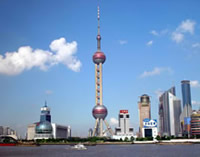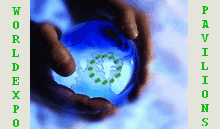|
|


ADVERTISEMENT
Buy Your own advertising
spaces!
.
Download Adobe Acrobat Reader to open [PDF] files.
Recent Visitors
Shanghai I Shall Adore
2009. 8 September
by Anne Midgette
(voices.washingtonpost.com)
And so the season begins. Tonight in Brussels, the Theatre de la Monnaie will see the first major Chinese opera co-production directed by a Chinese artist. Zhang Huan, a New York-based star of the contemporary Chinese art scene, who has never directed an opera before, will take on Handel’s "Semele," with Christophe Rousset and Les Talens Lyriques seeing to the musical end of the equation.
It’s not the first time that the Monnaie has turned to this formula of pairing stars of straight music and contemporary art: The Magic Flute, in 2005 (a production that went on to the Brooklyn Academy of Music in 2007), brought together René Jacobs and the South African artist William Kentridge (who is going on to direct Shostakovich’s “Nose” at the Metropolitan Opera this season). Kentridge, however, is known for his black-and-white videos, based on charcoal drawings, and his extensive work with puppet/spoken theater, whereas Zhang is a performance artist who has had relatively little exposure to opera.
(read more after the jump)
The production also a significant step in terms of the collaboration of East and West. Not only is half the production team and part of the cast Chinese (Ying Huang and Ning Liang sing Semele and Juno, respectively), but Zhang has intercut the score with segments of traditional Chinese music (with Rousset’s blessing). Furthermore, the production is slated to go on to Beijing’s National Center for the Performing Arts and then to Shanghai in time for the Expo in May, 2010; it will be the first-ever Baroque opera done in China.
If the Kentridge/Jacobs "Magic Flute" is any guide, "Semele" may divide its audience between those who come because of the artist and are bewildered by the opera, and those who come for the opera and are put off by the artist. But Zhang certainly has a concept that sounds interesting, as described by the Financial Times -- he's setting the action in a genuine, 450-year-old Ming Dynasty temple -- and "Semele" is, to my taste, a piece that can stand up to some fairly strong interpretive gestures (in part because it's an oratorio rather than an opera). I'd love to hear reports from anyone who's going.
Source: voices.washingtonpost.com

